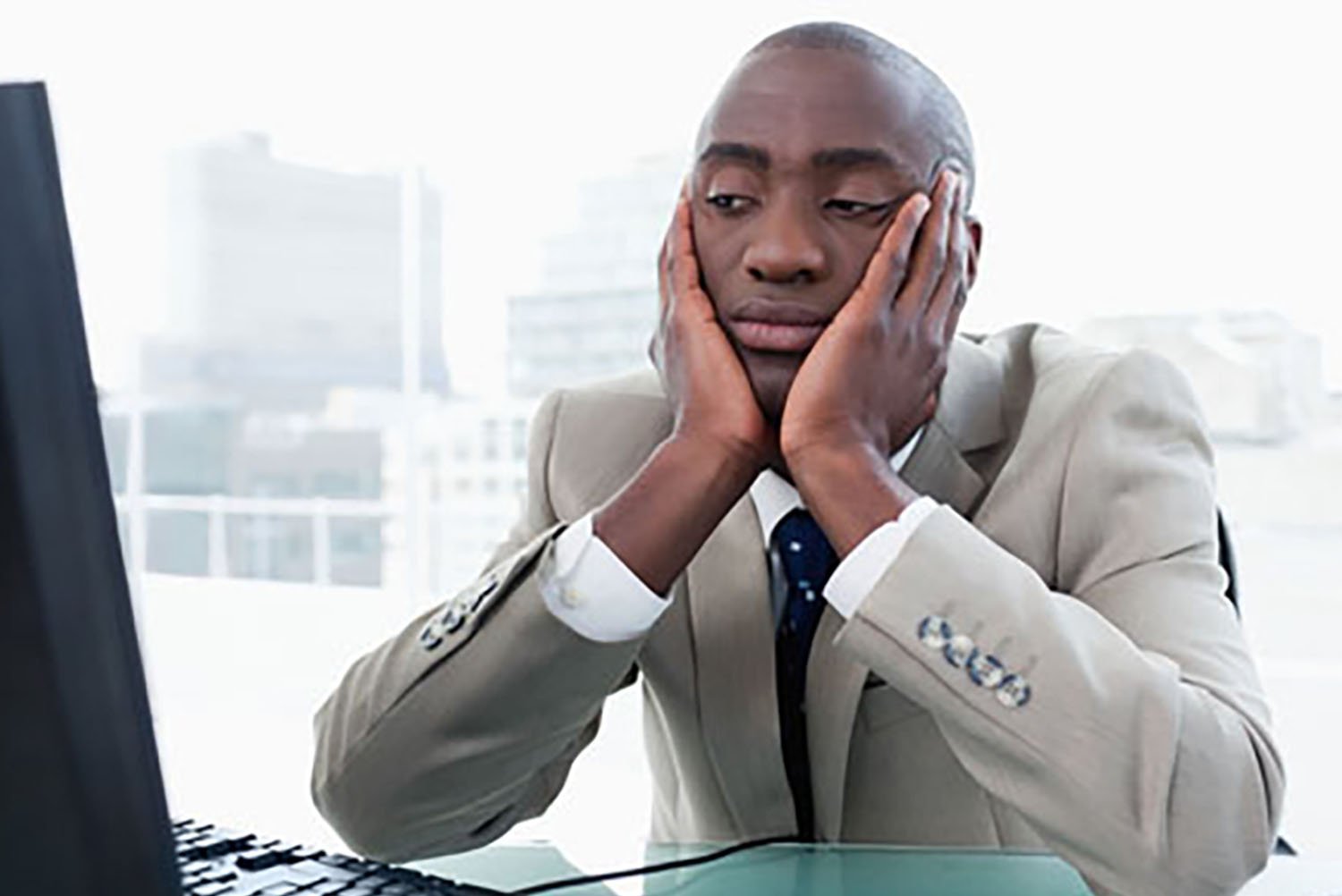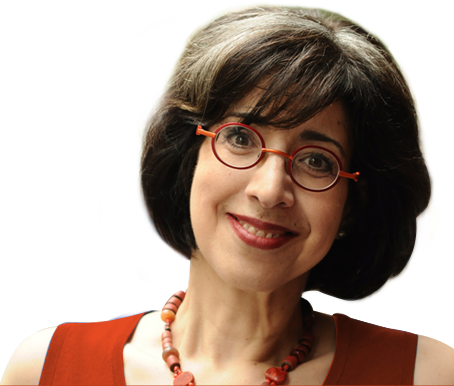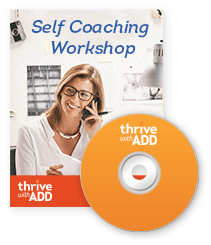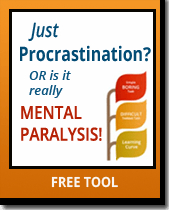
What if a substantial proportion of ADD / ADHD cases are really sleep disorders in disguise?
This intriguing question was posed by ADHD psychiatrist Dr. Vatsal Thakkar, in a recent article in the New York Times. (“Diagnosing the Wrong Deficit,” April 27, 2013).
We have found in recent years that people who are ADD or ADHD are more likely than the general population to suffer from sleep apnea, a medical condition that affects sleep.
Dr. Thakkar pointed out that sleep disorders are not only co-occurring conditions with ADD, but that ADHD symptoms can actually be caused by lack of sleep. In studies, a number of children with sleep disorders who had been diagnosed with ADHD were found to no longer have ADHD symptoms once their sleep disorder was treated. Their ADHD diagnosis had been false, even though the patients met the diagnostic criteria.
Dr. Thakkar's article mentioned studies done in adults that showed that cognitive performance diminished with less sleep, even though the subjects didn’t feel sleepy. That means that many of us aren’t even aware that we’re sleep-deprived, yet our ADD symptoms are likely worse because of it.
As a society in general, we sleep fewer hours than we used to.
Our days are crammed full of work and activities. Even our down-time is taken up staring into electronic devices that inhibit the release of melatonin, the hormone that helps you feel sleepy. (That’s why you should not do computer work or look at a lit screen device before bedtime if you have trouble following asleep!)
Lack of sleep and poor performance becomes a vicious cycle.
When you don’t feel productive or focused, you stay at work longer to get work done. By the time you finish there is little time to unwind and relax. Evenings are often spent on the computer, which keeps you from recognizing when your body is sleepy. When you have so few hours to relax by yourself or with others, it's no wonder you're reluctant to go to bed!
Imagine if …by getting all the Delta sleep your brain and body actually needed — you could focus really well.
In this state of achieving full sleep, you would wake up rested, get to work on time, and could leave at 5 o’clock after a productive workday.





Malkah Geller
I don’t know if I actually would go to bed earlier, since I usually get a second wind late at night. also I naturally wake up after 6hours of sleep. however I do take a 20-30 min nap almost every day.
Bonnie Mincu
Malkah, I often do something similar. We’re following the European siesta model! Unfortunately, the nap option is only available for those who work from home.
Eight hours of sleep is considered ideal, but of course not everyone’s body needs the same amount. The important point that the article raised is that we all have become accustomed to going without sleep that we may actually need, and we’re sleep deprived without being aware of it.
Danielle Osborne
Hi Bonnie,
I like the question you’re posing 🙂 !!! The idea of getting more sleep is very enticing …you’ll be more productive during the day, you’re more healthy/immune system is strong because your body had the time to recoup and overall you feel well-rested, which in turns allows you to be more productive during the day!!!!!
With that being said, it is difficult to change (what I think could be) a habit of running all the time, trying to fit in that one last thing before you go to bed, feeling stressed because you still have so much more to do (which for that point probably makes your sleep worse because you’re stewing over what still needs to be done, what the next day now holds in store for you, etc.).
I almost think you need to have a “program” to break the habit of always running, always trying to get that one last thing done (which I think a lot of ADD/ADHD people do ….I KNOW I DO 🙂 and in that program, not only breaking the habit, but also being shown how you can be MORE productive when you get the proper amount of sleep. I think you get caught in this cycle and it’s very difficult to break (like “not exercising”…when you don’t exercise, you’re tired and thenyou feel so tired that you just don’t have the energy to exercise…so detrimental) ….And logically, you know you SHOULD be exercising, but you just keep sabotaging yourself with being SO tired.
With getting more sleep and being shown how to be more productive and to NOT do that “one last thing” I think it would be “easier” or at least more rational/reasonable for people with ADD/ADHD to comprehend and then put into motion.
I think that I would benefit from the above 🙂
Bonnie Mincu
Danielle, you’re right. I like the idea of a program on HOW TO TURN IT OFF at the end of the day. The key is to create a RITUAL HABIT (with reminder systems) for a particular time and set of activities that constitute your procedure for shutting down. The ritual could be triggered by a set timer, a TV show, or whatever personally works for you. There would also need to be transitional reminders building up to that time. Aspects of the individual night-time winding-down ritual can be choosing clothes for the next day, taking out the garbage, using facial cleansing products, or (in my case) cleaning the cat box. At the “SHUT DOWN” time, you must turn off all lit-screen devices. You might have that be a hour before actually getting into bed.
Ann Worhatch
Very interesting! I am always sleep deprived now, especially in menopause and with a 16 year old involved in a theater group which practices until 9:30 pm every night, I often am not home to go to sleep before 10pm. However, as a child, I was an excellent sleeper. The only time I had trouble sleeping is when my older sister was scared and would keep me up by talking to me. As a child, one grandmother always asked if I had “Ants in my pants”. The other called me wiggle worm. I was very physically active as child. My child with ADD was calm before school started and also was a good sleeper, but is having problems in college. Another thing I noticed is if I get way too low on sleep several nights in a row, my insomnia it gets worse. I am dead tired, but my body seems wired and restless. I can do self hypnosis or clear my mind by using meditation skills, and sometimes it will help. Not always.
Bonnie Mincu
Yes, it’s an interesting phenomenon about sleep deprivation. Hyper-active kids (and maybe adults!) — when they are over-tired — get more active. It sounds like that may be happening with you as well; that the more tired you are, the less you are able to shut down your brain. I’d say definitely avoid the lit screens for at least an hour before going to bed.
Jeffrey D. Brown
Bonnie,
I am enjoying this discussion threat and decided for the first time to engage.
As you know, I am in Lima Perú recovering from the accident I had in Venice, Italy 3 weeks ago. At first it seemed like a horrible turn of events for me. However, with a change in focus and redefining priorities, it turns out to be a blessing in disguise.
I too have often suffered sleep deprivation which had a direct impact on my ADHD symptoms. Sometimes in a positive way, often times in a negative way. Through trial and error I learned various strategies that would apply to each of the circumstances that were causing the sleep deprivation.
For example;
1. I discovered that if I was hyper-stressed/ intense, as in….coming out of my skin late at night (12:00am and beyond) because of a work issue I had to face the next day, a last minute crisis that appeared out of the blue regarding a subject that was already done and “put to bed…..” etc. The 2 strategies I learned to employ are:
a. Do some kind of intense physical activity to break the stress cycle by adding endorphins into my system. Like 3 sets of 10 pushups alternating with 3 sets of 10 sit-ups.
i. The intense focus on completing the physical task breaks the mental loop causing my anxiety.
b. Or, ironically, drink a cup of coffee. Although this seems counterintuitive, it is one of the trigger points that caused my physician to consider ADHD as a diagnosis.
i. The caffeine stimulus counteracts the over stimulated negative thought pattern/loop in your current state.
2. Instead of lying in bed fighting with the thoughts and continuing the negative mental loop, get up and go to another room in the house. Although you may resist this idea because you think it may wake you all the way and worsen your insomnia, for me it provides a reset. Changing my environment releases me from the jaws of being “stuck” and offers new stimuli that encourage creativity.
a. Then I grab a book of inspiration or positive quotes.
b. Grab a pen and paper and start writing.
i. I often start with….WTH is your problem Jeff?
ii. Usually after I reject my first 2 or 3 responses as being “silly” I arrive at something deeper that pings my interest. I jot down my thoughts.
c. I then start to read short quotes from historical writers.
i. I focus on Purpose and Vision.
ii. Purpose quotes help me remind me who I am and what I’m here for.
iii. Vision quotes or statements help my get out of my head (out of my own way) and give me perspective.
iv. Then I write down some short notes and make a conclusion.
v. Then take my new refreshed mindset and go back and go to sleep.
I hope that by sharing some of my ideas and experiences, I can help further the discussion and add value to your group.
JB
Bonnie Mincu
Jeff, thank you so much for sharing your insight and “how to” process for addressing sleeplessness! You have a natural ability to deconstruct a situation, which helps a great deal in creating strategy. “Breaking it down” pulls the brain out of the emotional frustration loop of insomnia and puts you into a different frame of mind. I hope you keep on writing in this space — and best wishes on your speedy recovery!
Anne
Hi Bonnie,
My son’s various diagnoses (including ADHD) all faded away once stabilized on a CPAP machine. But they were so serious before that. It was very dramatic. And the diagnoses had seemed so likely before determining that a sleep disorder existed. So, thank goodness for this article, for everyone’s sake.
Cheers,
Anne
Bonnie Mincu
I’ve recommended to a number of my Adult ADD clients over the years that they get themselves checked for sleep apnea, which almost always turned out to be the case. Sure enough, once they started on CPAP machine treatment, they immediately noticed a significant difference. So it was no surprise to me that sleep apnea is now considered a common co-occurring condition with ADHD. I’m sure the bigger issue is a general lack of sleep, which would NOT necessarily be considered a disorder so much as a detrimental and strongly entrenched HABIT that is undermining our being at our best. This habit is hurting both adults and children, whether or not they’re ADD/ADHD.
The good news about habits is they can be changed! 🙂
Dorothy W
Thank you for this subject matter. I appreciate what Jeff had to say. Funny, I find a small glass of a caffeine drink helps me calm and go to sleep also. It makes sense, since most ADHD meds are a stimulant. Note, I said small. 🙂 I also have taken to the habit of closing the day with a short, but positive “affirmation-type” read to set my brain and heart on a calm, purposeful track. It helps me focus on who I am made to be and what I choose to do to live that purpose. Refreshing and centered, and anxiety subsides. I read the same thing first thing in the morning. I have been doing this daily (amazing that I followed through!) and I am experiencing super results. It is now my new habit that I WANT to do and won’t go to bed without doing.
When I was working out regularly, I found I could sleep really well. ( So why am I not working out now?) So, a new habit: exercise before dinner:) Do the chores we usually put off till bedtime, like laundry, garbage, straightening up, school/work supplied ready for the next day. Then, the brain can rest and enjoy the balance of the evening. The “Procrastination” webcast was helpful for me in this area. Another hint is use commercials as your time to do those tasks. We know a block of commercials lasts 5-10 minutes, so use that time for the short tasks, even exercise. You’ll be further ahead and won’t have missed a thing. (Gee, it helps prevent impulse buying too!)
Thanks for the Blog!
Peace all,
Dorothy
Bonnie Mincu
Dorothy, thank you for more helpful tips that you’ve proven really worked.
I imagine many of us with ADD/ADHD have no trouble having caffeine before bedtime. So many of my non-ADD friends can no longer drink coffee in the evening. They’re envious that I can drink all I want and it doesn’t affect my sleep at all!
Hazel Atkinson
What I was saying is that ADD/ADHD is not a pattern of sleep deprivation but rather a pattern of brain malfunction, something more like sleepwalking where the brain never fully comes out of a sleep cycle but you are aware of the fact that you cannot concentrate and function as you might wish because the brain is engaged in a subconsious process that cannot be interupted.
Mark Freedman
I believe there’s a lot of truth in this. This may be one of the reasons why ADD/ADHD seems to have spiked in my field (software development). A lot of us habitually work deep into the night, even waking with a solution in the middle of the night. And a lot of us work crazy hours, often because we can focus better at night for some reason (or after the rest of our family is asleep).
But it’s a lifetime of habit — very difficult to change patterns.
And I also find it fascinating that people with ADD can tolerate coffee at night. My friends have always been shocked that I can fall asleep right after having a couple of cups of coffee. I never found it to prevent my ability to fall sleep.
Bonnie Mincu
Mark, I’ve always believed software development is the perfect career for ADD people (writing code absolutely REQUIRES hyper-focus!) Regarding the coffee, since stimulant medication acts opposite on our brains than on non-ADD brains, it makes sense that caffeine does as well. I love being able to drink all the coffee I want. Unfortunately, so many of my friends can no longer tolerate it at night that I might be the only one at an evening gathering that wants regular coffee, so I end up having to drink decaf.
Dennis
Oh yes, I love my coffee too! I found, that when I drink my coffee with cream and sugar, it makes me very tired. When I drink it with just cream, or whole milk usually, then it does not make me tired. Sugar is supposed to get ya going, right! Anyway, I am like you Bonnie, I can drink coffee all day long, and right up to when I go to bed. When I’m tired, I can sleep, no problem. Actually, being mentally tired is my biggest problem. I used to sleep 10 and more hours a day, and still want to lay down and go back to sleep again. I have a cochlear implant. Before I could get the implant, I had to be interviewed by a panel of doctors. The one doctor was concerned, and thought I may have ADD. This was back in 2005. Okay, I did not really know what ADD was, and later did look it up. Years went by, and I never did anything about it, until just over a year ago. I am now 56 years old. So I have lived most of my life always feeling more tired than anyone else. I never really had an official diagnosis done, but that concerned doctor, may have hit the nail on the head, by telling me that he thought I had ADD. I take Adderall now, and it makes a world of difference! My brain now wakes up. While I have cut down quite a bit with drinking coffee, I still do drink it. Anyway, I don’t know how many times I went to my family doctor complaining about being tired, run down, no energy. Blood tests were usually done, and everything was normal. But never, not one single time, was ADD ever mentioned. Needless to say, I cannot make up for lost time, but finally, things are getting done! I have many, many other issues that probably are from ADD, but at least now, I know why. Maybe someday I would actually like to find out 100%, that my issue is ADD. But right now, I am satisfied with the great results that the medicine has given me. Thanks!
Bonnie Mincu
Dennis, it does sound like you’re ADD because of the “opposite” effect that caffeine has on you than non-ADD people. But I have not heard of ADD people necessarily being tired unless they’re not getting enough true restful sleep. Although you slept 10 hours a day, you still were not feeling rested.
I’d strongly suggest getting checked out at a real sleep clinic, since you are not getting the necessary benefits from your sleep time. If you do have a sleep disorder, it will make your ADD symptoms worse.
Tony
I really appreciate this vast tool of information that is the Internet. It allows me to find threads like this where I can learn form others who are treading through life with almost identical issues. Thanks Bonnie for your website and your work. Dennis’ comments and his circumstances ring true for me.
I’m a 49 year old man and was diagnosed ADD in 2006. At the time the diagnosis made perfect sense and explained everything. A grand AHAA. But I have also had the sleep issues as far back as I can remember, even as a child, where just as Dennis describes I could sleep 10 plus hours a night and still feel sleepy, and physically week all day, not to mention the cognitive fog.
I too am grateful for the clinician, a wonderful LCSW, who diagnosed my ADD in 2006, because as with Dennis I reported the hyper sleep and fatigue many times through the years to my Doctor’s. Depression and SAD was the tag that was applied and stuck. It is somewhat accurate but is truly a co-morbid condition with the ADD and the sleep abnormality the more primary root cause. After my initial ADD diagnosis and some psychotherapy I was started on methylphenidate, which worked great, but due to lack of health care follow up and a move from California back to Chicago my treatment fell through the big crack that is life. For a number of reasons, partly career problems (was homeless in Sacramento for almost 6 mos. with the housing and economy problems) and partly due to the move back to Chicago and losing touch with the clinician and MD who had started my ADD treatment, I was back to no treatment and left to fend off symptoms with no more than daily routines, work and exercise. It worked for awhile, as it always had, and then inevitably the depression mask gets put back, which, as had before led to a Doctor visit and a prescription for prozac. I cant’ tell you how many times that scenario has played out. I truly feel a good career for me would be to help younger people who truly have this complex of ADD and sleep irregularity to properly identify it and properly treat it and avoid all the wrong roads people like me and Dennis have had to go down.
Although I am still working through that process and reestablishing my treatment (had a home sleep test last week, took a TOVA test yesterday and am coordinating those results with a psychiatrist), I feel I am on a better diagnosis and treatment path than that of my past. As I wait for the follow up appointment with the sleep clinic and do my internet research on the sleep side of this condition I am anticipating starting on a cpap machine.
I too now have some “emotional baggage” issues that I feel are related to a sense of “lost time” and is why I think a career helping younger people would be good for me. I guess as with so many things hindsight is 20/20 and new information is always coming to the light of day. But again these forums help me and I want to say thank you for that.
Tony
Bonnie Mincu
Tony, thanks for sharing your story. You sound like a wonderful person for working with young people avoid the frustration you experienced. I think we’ll be hearing more and more about sleep issues in coming years.
Dennis
I’m not sure if I worded that correctly… I don’t feel tired now, at least after the adderall kicks in. Years prior to taking Adderall, I simply had a difficult time waking up. Many cups of coffee, and iced tea were needed to get my brain to wake up. You know the feeling when you first wake up? You are kind of in a hypnotic state. Well, it would take me quite a long time for that type of feeling to pass. That is what I meant, when I said tired feeling. I don’t sleep as many hours now, like I used to. I feel fine, after I take the Adderall. As a matter of fact, this is something very odd that has happened to me, since taking Adderall… I take high blood pressure medicine. I don’t have severely high blood pressure, but it’s high enough that I need to take medicine for it. Guess they call that pre-hypertension? Anyway, I still take the BP medicine, but the Adderall has helped bring my blood pressure down! I have always been sort of different, and I don’t know why the Adderall helps with lowing my BP, but it does! Thanks, but I actually sleep like a baby, and always have. My wife always says that she wishes she could sleep like I do.
Bonnie Mincu
That’s an Adderall reaction I haven’t heard of. Are you sure the Adderall is causing the blood pressure decrease?
xanax
I get pleasure from, cause I found just what I was taking a look for.
You’ve ended my four day lengthy hunt! God Bless you man. Have a nice day. Bye